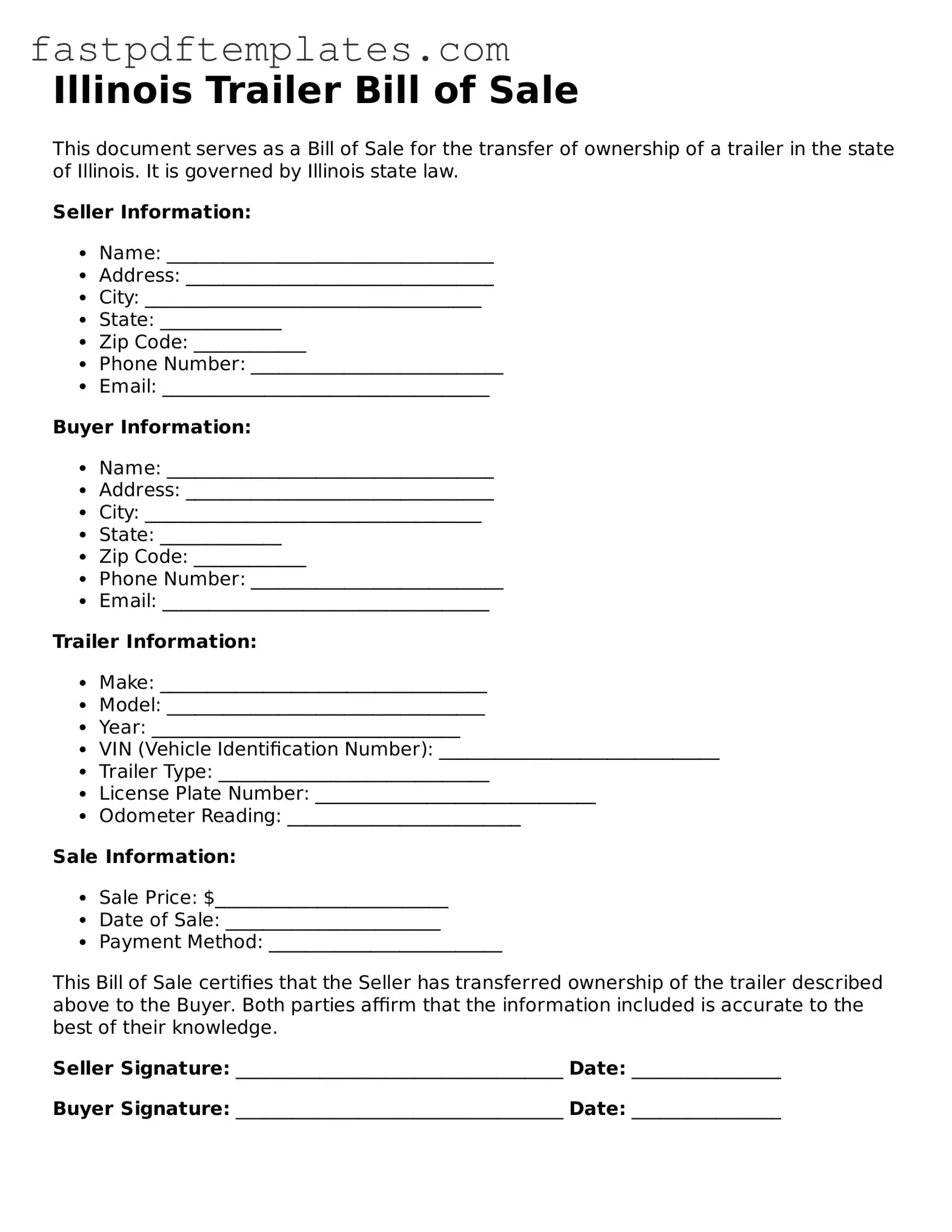The Illinois Vehicle Bill of Sale serves a similar purpose to the Trailer Bill of Sale form. It documents the transfer of ownership for a motor vehicle. This document includes essential details such as the vehicle's make, model, year, and identification number, along with the buyer's and seller's information. Both forms require signatures from both parties to validate the transaction, ensuring that the transfer of ownership is legally recognized.
The Boat Bill of Sale is another document that shares similarities with the Trailer Bill of Sale. Like the trailer form, it is used to transfer ownership of a watercraft. This document captures vital information about the boat, including its hull identification number, make, and model. Both forms serve to protect the interests of both the buyer and seller by providing a written record of the transaction.
The Motorcycle Bill of Sale is akin to the Trailer Bill of Sale in that it facilitates the transfer of ownership for motorcycles. This document includes critical details such as the motorcycle's make, model, year, and Vehicle Identification Number (VIN). Just like the trailer form, it requires the signatures of both the buyer and seller, ensuring that the transaction is officially documented.
The Mobile Home Bill of Sale also resembles the Trailer Bill of Sale. This document is used when transferring ownership of a mobile home. It contains essential details about the mobile home, including its make, model, and identification number. Like the trailer form, it ensures that both parties agree to the sale by requiring their signatures.
The Personal Property Bill of Sale is another related document. It can be used for various types of personal property, including trailers. This form outlines the details of the item being sold, along with the buyer's and seller's information. Similar to the Trailer Bill of Sale, it provides a written record of the transaction and requires signatures from both parties.
The Lease Agreement can be compared to the Trailer Bill of Sale in that it establishes the terms of a rental or lease arrangement for a trailer. While the bill of sale transfers ownership, a lease agreement outlines the responsibilities and rights of both the lessor and lessee. Both documents serve to protect the interests of the parties involved, but they differ in the nature of the transaction.
Lastly, the Gift Bill of Sale is similar in that it documents the transfer of a trailer as a gift rather than a sale. This form includes information about the trailer and the parties involved. While it may not involve a financial transaction, it still requires signatures to validate the transfer, similar to the Trailer Bill of Sale.

